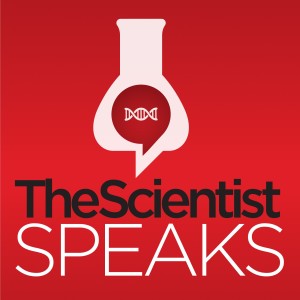Episodes

Thursday Dec 08, 2022
Science Philosophy in a Flash: Building Cancer Models with Creative Collaborators
Thursday Dec 08, 2022
Thursday Dec 08, 2022
Jennifer Munson is an associate professor in the Department of Biomedical Engineering and Mechanics at Virginia Tech. Her overarching research goal is to find new therapeutic targets in the tumor microenvironment by examining cancer from an onco-engineering perspective. Munson’s work combines fluid mechanics, neuroengineering, tissue engineering, and translational cancer research. She creates personalized models of brain and breast cancer with patient-derived cells to examine the roles of interstitial fluid flow and cellular microenvironment components in cancer progression and treatment.
In this episode, Deanna MacNeil from The Scientist’s Creative Services Team spoke with Munson to learn more about how she built her bioengineering lab.
To learn more about Munson's research, check out this ebook.
Science Philosophy in a Flash is a series of mini podcasts produced by The Scientist’s Creative Services Team. With a focus on the people behind the science, this podcast highlights researchers’ unique outlook on what motivates their pursuit of science and what it means to be a scientist.

Friday Dec 02, 2022
Science Philosophy in a Flash: Sharing Scientific Ideas in Disease Genetics
Friday Dec 02, 2022
Friday Dec 02, 2022
Jukka Koskela, a senior researcher at the Finnish Institute for Molecular Medicine, studies the complex genetics of various diseases, including rare diseases such as pulmonary fibrosis. Koskela began pursuing research as a requirement of his clinical training at Helsinki University Central Hospital, and through discussions shared with other scientists, he became passionate about seeking genomic avenues for personalized disease risk assessment.
In this episode, Deanna MacNeil from The Scientist’s Creative Services Team spoke with Koskela to learn more about what motivates him as a scientist.
To learn more about Koskela's research, check out this article.
Science Philosophy in a Flash is a series of mini podcasts produced by The Scientist’s Creative Services Team. With a focus on the people behind the science, this podcast highlights researchers’ unique outlook on what motivates their pursuit of science and what it means to be a scientist.

Wednesday Nov 30, 2022
The Fight Against Time: Stem Cells and Healthy Aging
Wednesday Nov 30, 2022
Wednesday Nov 30, 2022
Despite the genetic basis of healthy aging, diet plays an important role in preventing inflammation, diabetes, and cognitive decline. Yet, healthy food choices are just part of the equation. Researchers are discovering how fasting can undo some of the metabolic damage imposed by the overindulgences of the typical Western diet. The human body may be wired to function optimally when exposed to periods of fasting, which reawakens stem cell activity and the body’s intrinsic capacity to regenerate. The next frontier in this research field is the brain and the ways in which fasting may help improve age-related cognitive deficits.
In this episode, Iris Kulbatski from The Scientist’s Creative Services Team spoke with Valter Longo, a professor of gerontology and biological sciences at the University of Southern California and the director of the USC Longevity Institute, to learn more.
The Scientist Speaks is a podcast produced by The Scientist’s Creative Services Team. Our podcast is by scientists and for scientists. Once a month, we bring you the stories behind news-worthy molecular biology research. This month's episode is sponsored by ATCC.

Monday Oct 31, 2022
Science Philosophy in a Flash: Wired to Regenerate
Monday Oct 31, 2022
Monday Oct 31, 2022
Paul George, an assistant professor of neurology and neurological sciences at Stanford University, taps into the bioelectrical language of the injured brain to reawaken the healing potential of neural stem cells. Inspired by his patients, he looks for innovative strategies that may one day help patients recover from neurodegenerative diseases such as stroke. In this episode, Iris Kulbatski from The Scientist’s Creative Services Team spoke with George to learn more about what being a scientist means to him.
For more on this topic, please see "Stem Cell Engineering for Tissue Regeneration."
Science Philosophy in a Flash is a series of mini podcasts produced by The Scientist’s Creative Services team. With a focus on the people behind the science, this podcast highlights researchers’ unique outlook on what motivates their pursuit of science and what it means to be a scientist.

Friday Oct 28, 2022
Exploring the Secrets to Longevity and Cancer Resistance in Mole-Rats
Friday Oct 28, 2022
Friday Oct 28, 2022
As humans age, cells often acquire defects that lead to cancer. However, this fate may not be set in stone, as certain animals can circumvent the ravages of time and keep their cells healthy.
In this episode, Niki Spahich from The Scientist’s Creative Services Team spoke with Vera Gorbunova, professor of biology at the University of Rochester and co-director of the Rochester Aging Research Center, to learn about her research on naked and blind mole-rat cancer resistance.
The Scientist Speaks is a podcast produced by The Scientist’s Creative Services Team. Our podcast is by scientists and for scientists. Once a month, we bring you the stories behind news-worthy molecular biology research. This month's episode is sponsored by Mettler Toledo.

Friday Sep 30, 2022
What Comes Up Must Go Down: Maintaining Hormone Balance Through RNA Decay
Friday Sep 30, 2022
Friday Sep 30, 2022
To regulate protein production, cells use sophisticated strategies to keep RNA levels in check. This balance is especially important for hormone production, particularly aldosterone—the master regulator of blood pressure. When this balance is disrupted, the risk for disorders including hypertension and cardiovascular disease increases.
In this episode, Niki Spahich from The Scientist’s Creative Services Team spoke with Neelanjan Mukherjee, assistant professor of biochemistry and molecular genetics at the University of Colorado Anschutz Medical Campus, to learn more.

Tuesday Sep 13, 2022
Science Philosophy in a Flash: Making Scientific Strides in the Produce Aisle
Tuesday Sep 13, 2022
Tuesday Sep 13, 2022
Welcome to Science Philosophy in a Flash, a mini podcast series produced by The Scientist’s Creative Services Team. In this series, we highlight researchers’ unique outlooks on what it means to be a scientist.
Andrew Pelling, a professor at the University of Ottawa with appointments in the Departments of Physics and Biology, has a fresh approach to practicing science. He uses fruits and vegetables to create biodegradable scaffolds for tissue regeneration. His lab is a cross-pollinating hive of diverse disciplines, unencumbered by the rigidity of traditional approaches that favor a narrower focus. With the creative freedom to pursue knowledge for its own sake, Andrew’s lab tests innovative solutions for some of the most challenging medical research questions. In this episode, Iris Kulbatski from The Scientist’s Creative Services Team spoke with Andrew to learn more about his unique philosophy of science.

Wednesday Aug 31, 2022
Filling in the Gaps: Sequencing the Entire Human Genome
Wednesday Aug 31, 2022
Wednesday Aug 31, 2022
Sequencing the human genome in the early 2000s was an incredible feat, but the sequence was incomplete. Recently, a consortium of researchers published a telomere-to-telomere assembly of a complete human X chromosome. This accomplishment was made possible by advances in sequencing technology, allowing researchers to address the previous technical difficulties in analyzing challenging genomic regions. Filling in these gaps of the human genome represents a breakthrough in human genetics and opens the door to a wealth of future studies that will undoubtedly advance our understanding of health and disease.
In this episode, Iris Kulbatski from The Scientist’s Creative Services Team spoke with Karen Miga, an assistant professor of biomolecular engineering at University of California, Santa Cruz’s Genomics Institute and a recent honoree on TIME’s list of the 100 most influential people of 2022, to learn more.
The Scientist Speaks is a podcast produced by The Scientist’s Creative Services team. Our podcast is by scientists and for scientists. Once a month, we bring you the stories behind news-worthy molecular biology research.

Monday Aug 08, 2022
Science Philosophy in a Flash: A Look at Aging Through Young Eyes
Monday Aug 08, 2022
Monday Aug 08, 2022
Welcome to Science Philosophy in a Flash, a mini podcast series produced by The Scientist’s Creative Services Team. In this series, we highlight researchers’ unique outlooks on what it means to be a scientist.
Aimée Parker, a research scientist at the Quadram Institute’s Gut Microbes and Health Research Programme, looks to the gut as the fountain of youth. She studies how rejuvenating the microbiome can subdue chronic inflammation and prevent age-related tissue and organ dysfunction. Motivated by a commitment to collaboration and scientific discovery, her work casts a fresh perspective on aging gracefully. In this episode , Iris Kulbatski from The Scientist’s Creative Services Team spoke with Parker to learn more about what she values as a scientist.

Saturday Jul 30, 2022
Rising from the Dead: How Soil Bacteria Absorb Antibiotic Resistance Genes
Saturday Jul 30, 2022
Saturday Jul 30, 2022
Scientists have known for a long time that microbes can take up extracellular DNA fragments, and they have leveraged this transformation process to genetically modify bacteria in the lab. However, transformation is quite fickle and depends on creating the right balance of reagent concentrations and cellular conditions. How this process takes place outside of the petri dish, in more natural bacterial environments such as soil, has proven more difficult to determine.
In this episode, Nele Haelterman from The Scientist’s Creative Services Team spoke with Heather Kittredge, a postdoctoral research associate at the University of Connecticut, and Sarah Evans, an associate professor of integrative biology at Michigan State University, to learn more about natural transformation in bacteria and its implications for the rise in antibiotic resistance.
The Scientist Speaks is a podcast produced by The Scientist’s Creative Services team. Our podcast is by scientists and for scientists. Once a month, we bring you the stories behind news-worthy molecular biology research.

